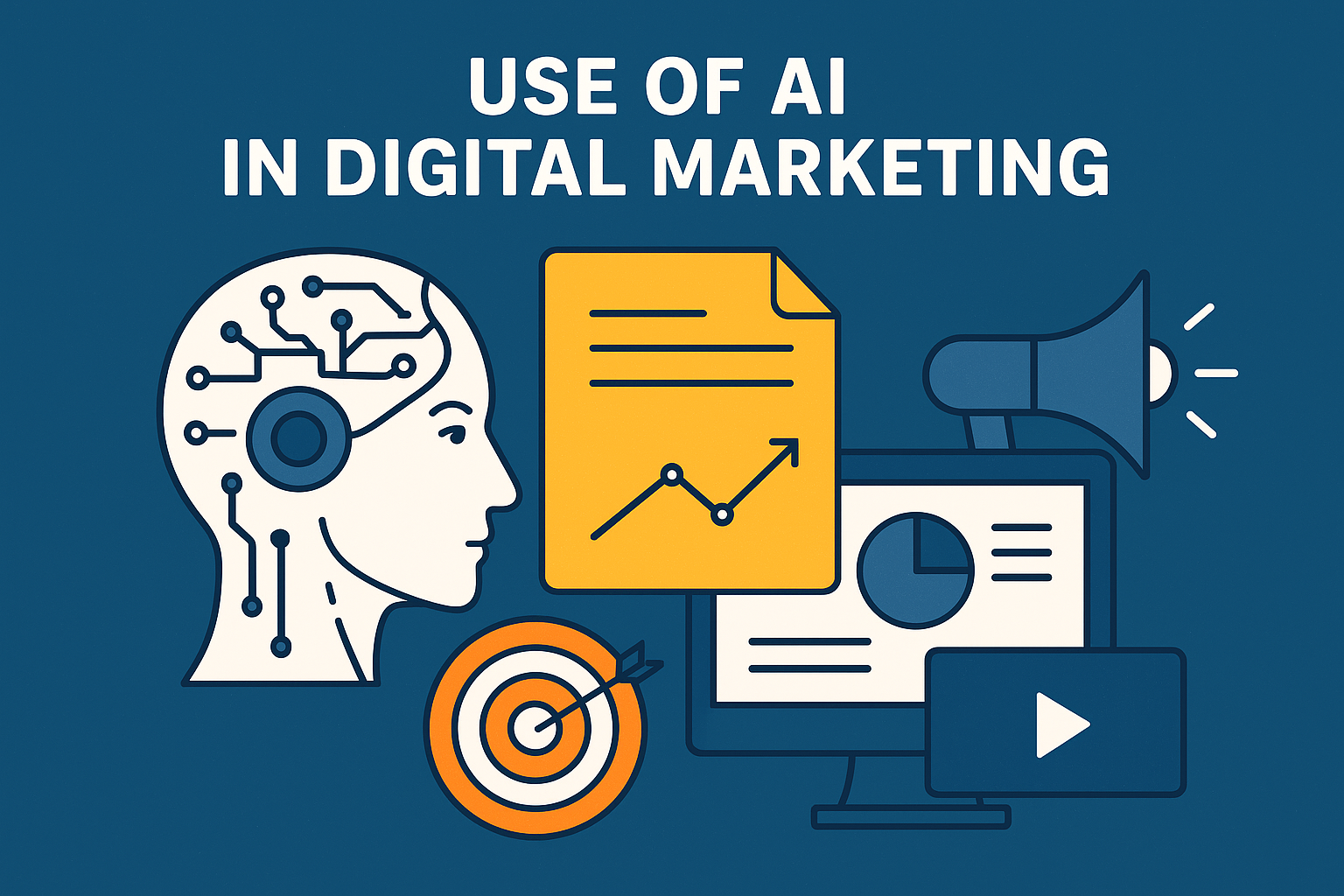In today’s fast-moving digital space, companies are constantly looking for smarter ways to connect with audiences, deliver tailored experiences, and maximize return on investment. One of the most powerful forces driving this transformation is Artificial Intelligence (AI). Once viewed as a futuristic concept, AI is now firmly embedded in modern marketing practices, influencing everything from personalization to campaign optimization.
This article explores how AI is changing the marketing landscape and why businesses across all industries are embracing it.
Understanding AI in Digital Marketing
At its core, Artificial Intelligence refers to technologies that allow machines to mimic human-like intelligence and decision-making. Within marketing, AI tools process and interpret vast datasets, uncovering patterns in consumer behaviour and enabling strategies that are both targeted and efficient.
Unlike traditional marketing approaches that often relied on assumptions or broad demographic groups, AI empowers marketers to act on real-time, data-driven insights with greater speed and precision.
Key Applications of AI in Digital Marketing
1. Delivering Personalized Customer Journeys
One of AI’s most visible contributions is in personalization. From online shopping platforms to entertainment apps, algorithms study browsing patterns, purchase history, and user preferences to provide tailored product or content suggestions. This creates a more relevant experience for customers while also improving the likelihood of conversions.
2. Predictive Analytics for Forward-Looking Strategies
AI-powered predictive analytics allow marketers to forecast trends and anticipate customer needs before they arise. Retailers, for instance, can estimate seasonal demand, while subscription services can identify which users are at risk of canceling and proactively re-engage them. These insights help businesses stay ahead rather than simply react.
3. Conversational AI and Chatbots
AI-driven chatbots have redefined customer service. They provide quick answers to common questions, assist with product recommendations, and operate around the clock. By reducing wait times and handling repetitive inquiries, chatbots free up human agents to focus on more complex or high-value interactions.
4. Smarter Content Creation and Optimization
AI tools assist marketers by automating repetitive tasks such as drafting product descriptions, suggesting SEO-friendly keywords, or generating social media captions. While these tools accelerate production and improve optimization, human creativity remains essential for crafting authentic and engaging stories. The most effective strategy combines both.
5. AI-Optimized Advertising Campaigns
Digital ad platforms now rely heavily on AI to ensure campaigns reach the right people at the right time. Machine learning models continuously evaluate performance, automatically adjust bids, and refine targeting in real time. This makes ad spending more efficient and helps maximize return on investment.
6. Transforming Email Marketing
AI enhances email campaigns by analysing customer data to identify the most effective timing, subject lines, and message styles. It also supports more precise audience segmentation, ensuring that each subscriber receives content aligned with their specific interests and behaviours.
Benefits of Using AI in Digital Marketing
- Greater Efficiency: Automates repetitive work and minimizes manual errors.
- Improved ROI: Smarter targeting ensures marketing budgets are spent effectively.
- Deeper Insights: Offers a clearer picture of customer expectations and behaviors.
- Scalability: Enables small teams to compete with larger organizations.
Challenges to Consider
Despite its advantages, AI adoption comes with important considerations:
- Privacy and Ethics: Using customer data responsibly is critical.
- Dependence on Technology: Over-automation can erode the human touch in marketing.
- Implementation Costs: Some AI platforms may be expensive for smaller businesses.
- Bias in Algorithms: Poorly trained models can unintentionally lead to unfair outcomes.
By addressing these challenges, businesses can integrate AI in ways that are both effective and responsible.
The Future of AI in Digital Marketing
The next wave of AI applications is expected to be even more advanced, with innovations like voice-based search optimization, image recognition for shopping, and hyper-personalized experiences driven by real-time data.
Companies that adopt AI early—and balance it with human creativity—will hold a strong competitive edge, while those that resist risk falling behind in a data-driven marketplace.
Final Thoughts
AI has evolved beyond a buzzword to become a strategic partner in digital marketing. When combined with human insight and creativity, it enables businesses to deliver experiences that are both efficient and authentic. The real opportunity lies not in replacing marketers, but in equipping them with smarter tools to craft strategies that truly resonate.



